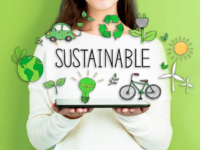 How can we bring the future of FMCG closer? It’s time to unite foresight, insight, science and technology.
How can we bring the future of FMCG closer? It’s time to unite foresight, insight, science and technology.
Populating the pipeline for the future has been an ongoing challenge in FMCG. What we frequently call innovation is more often something that addresses an immediate need.
It’s a short-term reaction or relatively cost-effective and sensible response to a gap in current insight. This is a big problem.
We live in a time of unprecedented change across all elements of the value chain; and a time where consumers have taken the power back. Innovation is not only a key route to business growth but also a powerful way to maintain relationships with consumers. It keeps them engaged.
How can the Australian FMCG industry leverage and invest in innovation, in order to succeed not just today, but tomorrow?
Renovation (tweaking existing offerings) has a role to play, but we must remember that it can only take us so far. All too often, innovation in FMCG is based on volume calculations and a response from the current audience, in the current mind-set rather than with the future in mind.
To create true competitive advantage, the industry needs to find a way to actively tie insight into the specialties of foresight, technical development and the intellect of emerging academics, so that the future is a little more tangible, and the pipeline is a little fuller.
We need to rethink innovation and we need to challenge inertia.
Innovation DOES NOT always have to mean revolution … it could be a change in format which creates a new occasion. There IS room on the shelf … the opposite attitude is closed thinking. Due to the growth of online shopping we aren’t as constrained as we used to be. The rapidly changing marketing, consumer and retail landscape means we need to think about 5 years’ time, not just what’s in front of us or the next 12 months.
What if innovation and insights specialists started partnering up?
What if innovation specialists, futurists, academics and insights agencies started collaborating with their client teams to explore both the short-term and the long-term futures? By putting our heads (and tools) together, we can leverage insight and existing infrastructure to accelerate the process for creating iterations, as well as identify when there is a need for real change.
A great innovation pipeline responds to what the world might be when the product is executed, not just a projection of what we know and would like. This future is informed by science and progress in technology. Of course, the further this future reality is from the core products you sell right now, the more you need consumer and shopper exploration to inform your decisions.
It’s time to turn on the light bulb
We know how difficult it can be to truly innovate. The longer a company has been in business, and the more mature a brand or category is, the harder it can be. Yet the fragmentation that exists in the current systems of many businesses only serves to compound the challenge.
So, perhaps the FMCG industry could speed up the innovation process, if only we’d give ourselves the room, the time and the variety of perspectives required, to deliver to the future’s needs. Then you could argue that we have created a true innovation pipeline.
Chris Thomas is the Managing Director at Sydney and Melbourne based creative market research agency, PLAY MR – the FMCG specialists. Click here to find out how PLAY’s partnership with Monash Food Innovation Centre is helping FMCG businesses make innovation happen.















